Endometriosis and Reproductive Surgery Unit
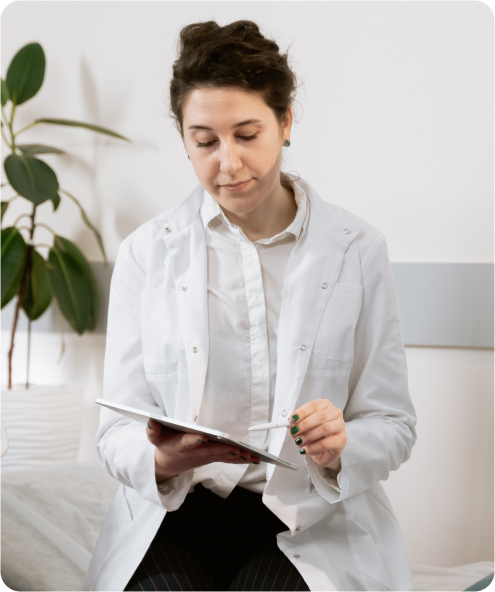
Endometriosis affects approximately 10% of women of reproductive age. Eugin’s endometriosis and reproductive surgery unit takes a comprehensive approach to this disease, focusing not only on diagnosis and the extent of the disease, but also on personalised treatment adapted to the woman’s different reproductive stages.
Our aim is to provide the best possible medical or surgical treatment, according to the patient’s needs, while taking into account her reproductive wishes and following the highest standards of minimally invasive surgery.
What is endometriosis?
Endometriosis is a pathology in women of childbearing age in which there is an implantation of endometrial cells outside their natural location, which is the uterine cavity. So, this type of tissue can be located in the ovary, which is the commonest, or in other parts of the body such as the intestine, the bladder or the pelvic area.
These endometrial cells, regardless of where they are located, also grow and follow the hormonal cycle associated with menstruation, which can cause internal bleeding in abnormal places in a woman’s body, resulting in pain and may have other consequences such as infertility.
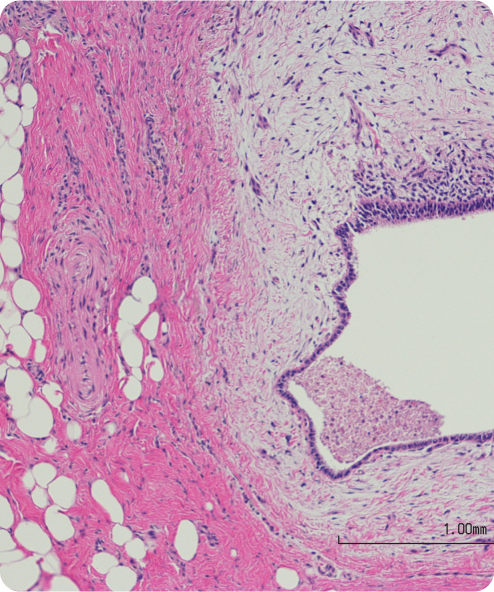
What are the symptoms of endometriosis?
It is estimated that there are around two million women with endometriosis in Spain and that it takes an average of seven years to diagnose it. This is due, in part, to the fact that there is no single defining symptom of the disease and, even though there are some frequently occurring complaints, these do not always appear clearly in all cases and, even in the mildest forms, they may go unnoticed.
However, specialists point out some characteristic symptoms of endometriosis such as the following:

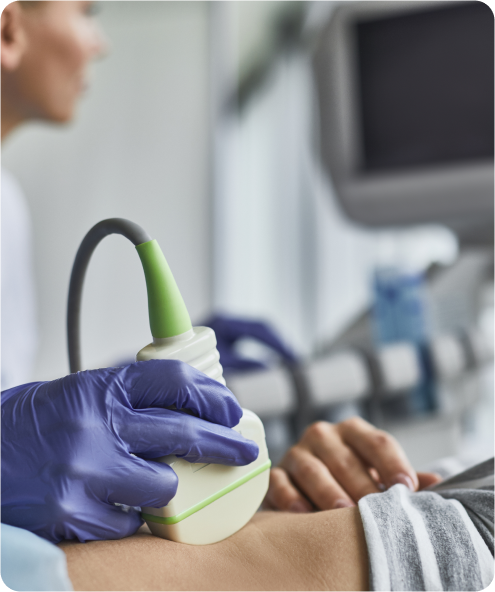
What are the causes of endometriosis?
At present, the exact cause of endometriosis is not known, although there are several hypotheses that attempt to explain it and which are still being investigated:
- One of them is retrograde menstruation, meaning that the endometrium is not completely shed during menstruation, causing these remnants of endometrial tissue to move into the fallopian tubes and pelvic cavity.
- Another cause of endometriosis may be due to immune system disorders, due to the body’s inability to get rid of endometrial tissues from their proper place.
- There is also a theory that certain tissues are transformed into endometrial tissue by genetic or environmental factors.
- Finally, it is thought that there may be a transfer through blood or lymphatic vessels of endometrial tissue that ends up implanting in abnormal sites.

Is there a treatment for endometriosis?
Endometriosis is a chronic disease and there is no treatment for a definitive cure. However, treatments are applied to alleviate its symptoms and prevent its progression up until the menopausal stage, when the woman is no longer fertile and the problem disappears.
The recommended treatment will depend in each case on the degree of impairment, the patient’s age and her interest in getting pregnant. Some of the most common are as follows:
- Anti-inflammatory medication for pain relief.
- Hormonal treatments, such as contraceptives, to regulate the hormones involved in the menstrual cycle.
- Surgery to remove endometrial tissue in severe cases.
In any case, if the patient has no symptoms or the endometriosis is mild, only medical monitoring is prescribed, without suggesting any type of treatment.
Types of endometriosis and their consequences
Endometriosis can arise in different parts of the body, even away from the uterine cavity. The most common are the ovaries, bladder, bowel and pelvic cavity.
Ovarian endometriosis
It leads to ovarian cysts and, depending on the size of the cyst, can destroy healthy ovarian tissue. In these cases, women usually have a lower ovarian reserve.
Bowel endometriosis
It generates endometrial tissue in the bowel and often causes digestive symptoms such as constipation or cramps.
Bladder endometriosis
It develops in the bladder and can cause, for example, urinary tract infections.
Adenomyosis
It produces endometriotic nodules in the uterine wall.
Deep or severe endometriosis
This is pelvic adhesive disease in the pelvic cavity, also known as frozen pelvis. It usually causes nodules throughout the cavity and a great deal of pain.
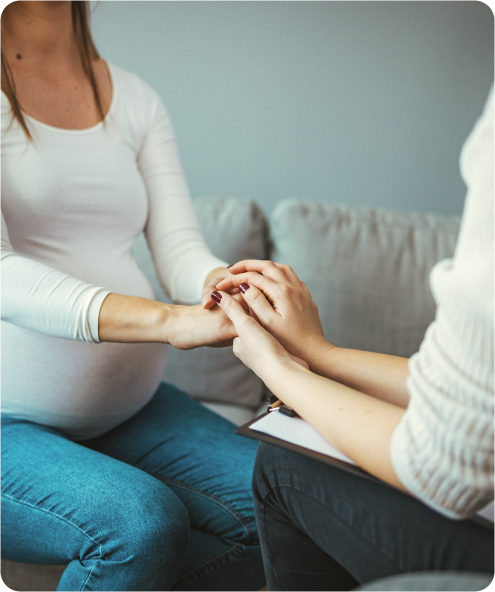
Endometriosis and pregnancy
Suffering from endometriosis is not synonymous with sterility. Although this pathology can directly affect a woman’s fertility in 3 out of 10 cases, the first step is to try to get pregnant naturally. If after a period of time (six months in women over 35, one year in women under 35), it is not possible, then it is time to consult a specialist.
When a woman suffers from endometriosis, pregnancy is difficult to achieve for two reasons: either because the endometriosis itself reduces the number and quality of the woman’s eggs, or because it distorts the anatomy of the woman’s pelvis, altering the function of the fallopian tubes and making it difficult for pregnancy to occur. In these cases, after analysing each patient individually, it is possible to resort to assisted reproduction through in vitro fertilisation.

Reproductive surgery: beyond the diagnosis and treatment of endometriosis
In its most severe manifestations, endometriosis may require surgical intervention to remove the endometrial tissues that are causing the patient’s problems. In Eugin’s case, surgery for any type of pathology (uterine, pelvic, ovarian) is always carried out by a reproductive specialist.
The key is that this reproductive surgery is less invasive and very precise, as the aim is twofold: on the one hand, to treat the symptoms caused by endometriosis and, on the other, to preserve the internal genital apparatus of the woman in her reproductive years when she wants to be able to conceive after the operation.
Medical team specialised in Endometriosis and Reproductive Surgery Unit
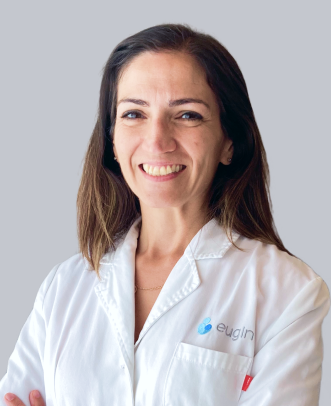



Learn more about endometriosis and reproductive surgery
Contact us if you have any queries or need more information. Our multidisciplinary team of professionals will seek the best solution based on your needs.
Endometriosis and natural pregnancy
“Having endometriosis is not synonymous with sterility,” says Dr. Clara Colomé, a gynaecologist specialising in assisted reproduction.
Endometriosis in fertility
Endometriosis is a relatively frequent pathology among women of childbearing age, and depending on its degree of severity, it has a direct influence on the chances of achieving pregnancy.
Come and visit us
We would be delighted to meet you in person, show you around our facilities and introduce you to our expert team. Visit us at:
Eugin Barcelona
C/ Balmes, 236
Phone: +34 933 221 122
Suppliers and professionals: +34 934 446 303
Eugin Madrid
C/ Alfonso XII 62, Pl. Baja A
Phone: +34 913 360 400
Suppliers and professionals: +34 934 446 303

